QAS, QPS and QFES communication officers share their stories
When an emergency unfolds, your first point of contact are the people who answer the call. These are their stories from across Toowoomba.
Toowoomba
Don't miss out on the headlines from Toowoomba. Followed categories will be added to My News.
In light of recent natural disasters that have struck the region, The Chronicle has spoken with five emergency dispatchers, who are generally the first people one will speak with should an emergency unfold.
These are their stories.
Veteran reflects on 45 years
A Toowoomba man has clocked 25 years of service to the Queensland Ambulance Service, on top of a commemorated 20-year service to Australia within the Australian Army.
Emergency Medical Dispatcher David Hartshorn has seen many things during his 45-year service to the nation, including conflicts, natural disasters, and ever-changing technological advancement.
“Technology was pretty basic when I started here … we had none of the computers we have now,” he said.
“They were great big bricks, and we wrote everything on cards.”
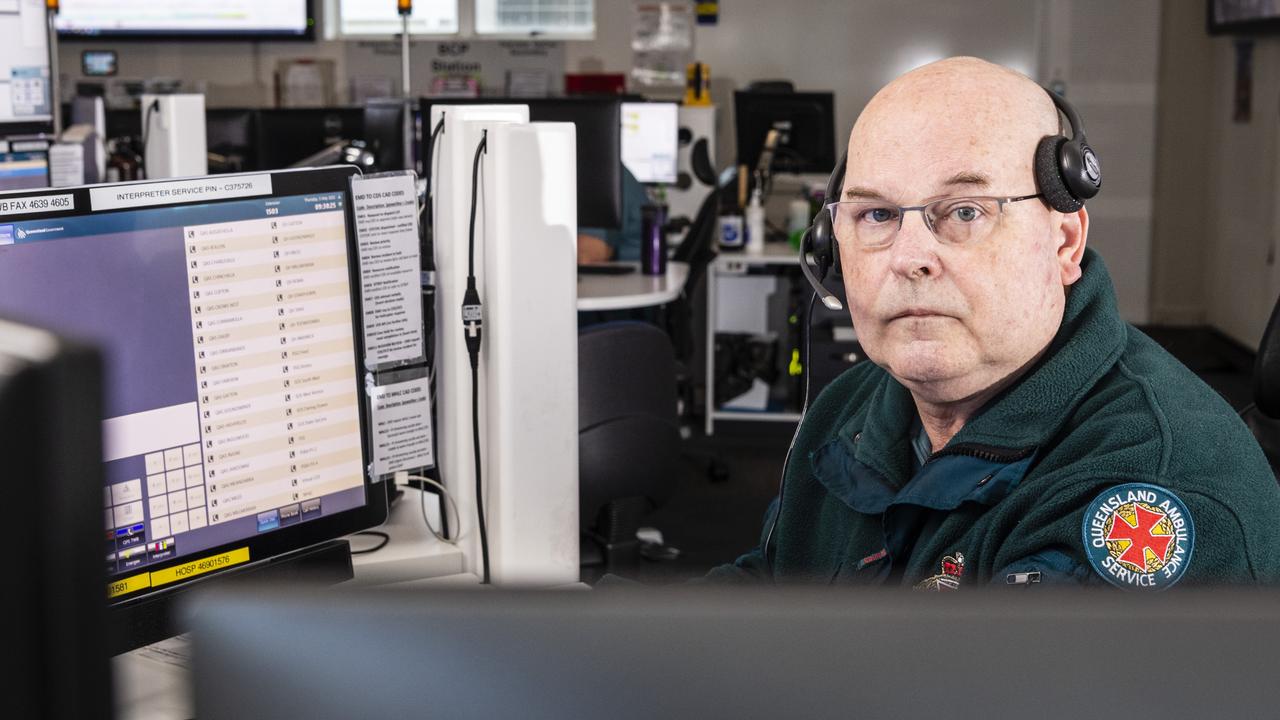
Mr Hartshorn served in communications within the army, and after several traumatic incidences and a natural progression of time and career, Mr Hartshorn was offered a position with the Queensland Ambulance Service.
“Someone at work said the ambulances were looking for operators, so I sent my resume without seeing any advertisement … and as they say, the rest is history,” he said.
During his 25 years as an EMD, one stands out above the rest – the 2010/2011 floods.
On January 9, Mr Hartshorn said he had been asked to cover an overtime afternoon shift for the following day, something he said wasn’t a regular occurrence in the office.
“I walked into the room about 1 o’clock and the sky fell in,” he said.
“People were being swept away, and then Grantham and the Lockyer Valley … it all happened that afternoon.
“We lost a lot of people that day.
“It’s a day I’ll never forget.”
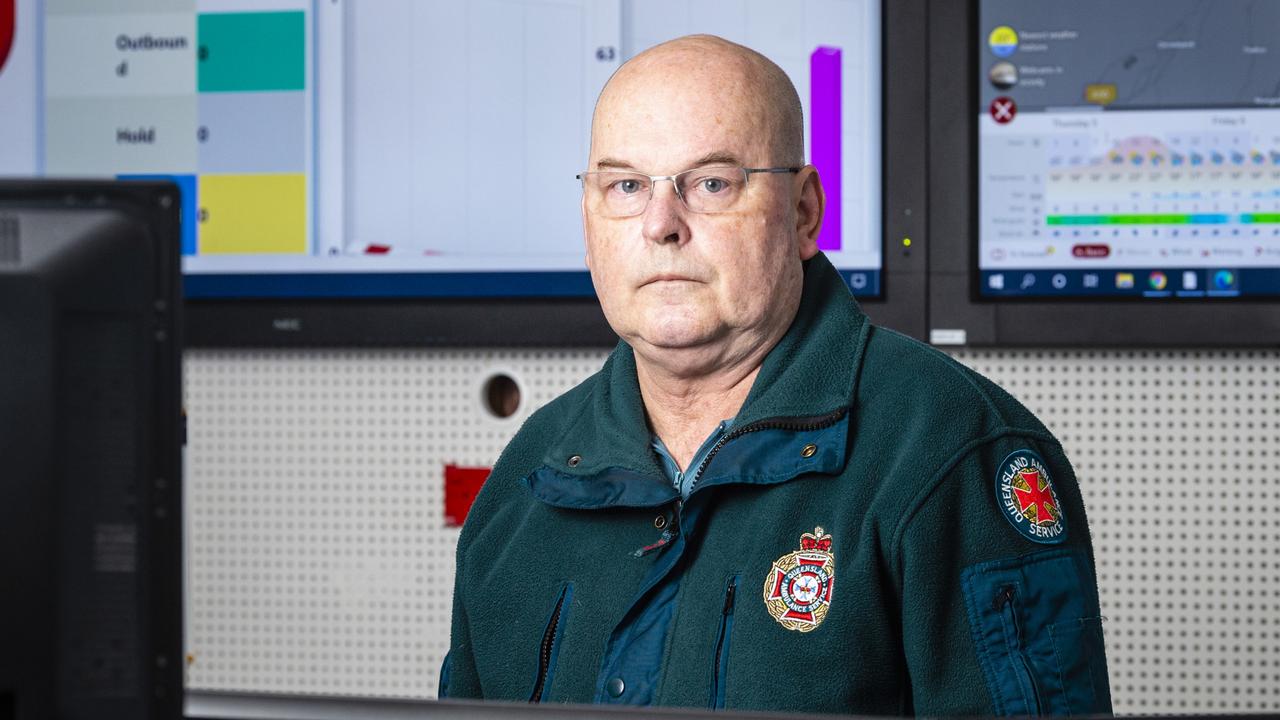
Mr Hartshorn has received commemorations from both the Australian Army and QAS for his commitment and dedication to his roles, and said it was an “ongoing privilege” to help fellow Queenslands during “traumatic and stressful times”.
“There will be some night shifts here, particularly during this Covid pandemic, where you are constantly picking up calls for your entire 12 hours, and you need to treat each case on its merits and individually,” he said.
“I try to treat everyone as if they are my family member.
“If I had one of my grandchildren ring, I want the best care for them.”
Career change for Carly
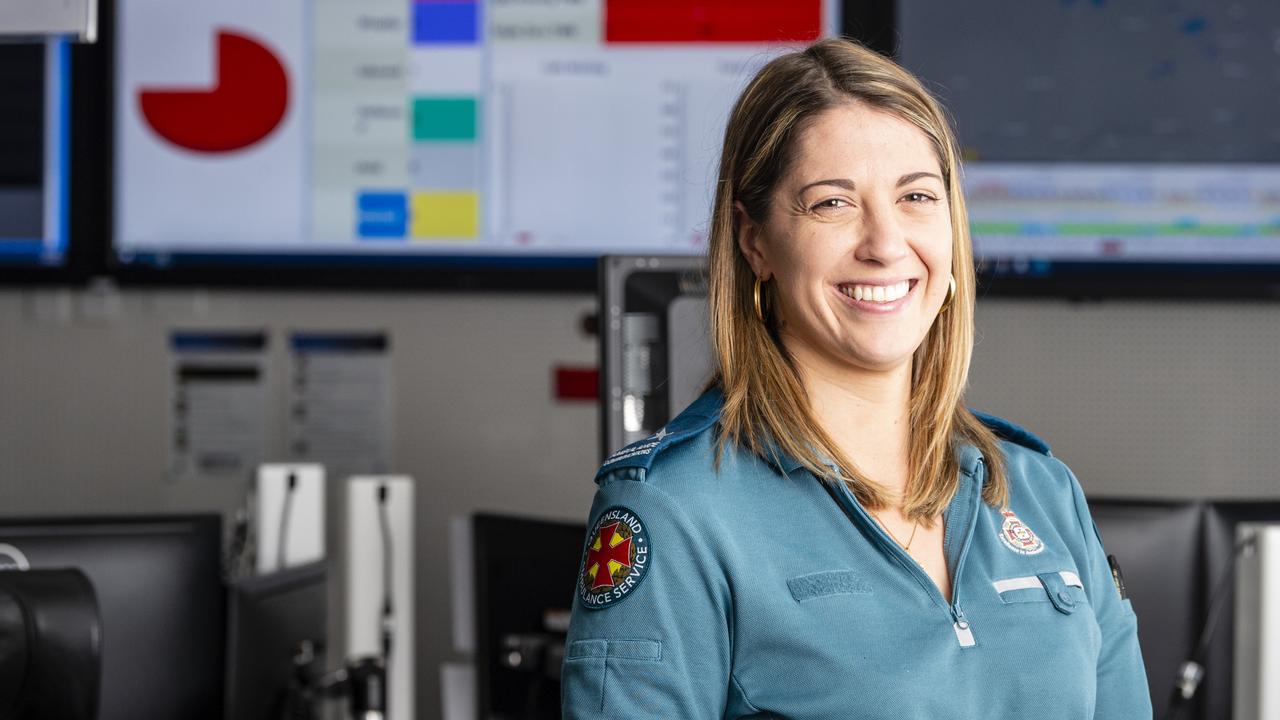
A calm and reassuring emergency medical dispatcher during a difficult phone call is what led a Toowoomba woman to transition into a new career.
Queensland Ambulance Service EMD Carly Meyer was posted to the Toowoomba Operations centre in December last year, after completing an eight-week training program and relocating from Cairns.
“A combination of wanting to help others and loving a fast paced, pressure cooker environment really made it feel like this was the job for me,” she said.
“It has certainly been a very big learning curve, especially with the challenge of learning such a big area, but I definitely love it.”
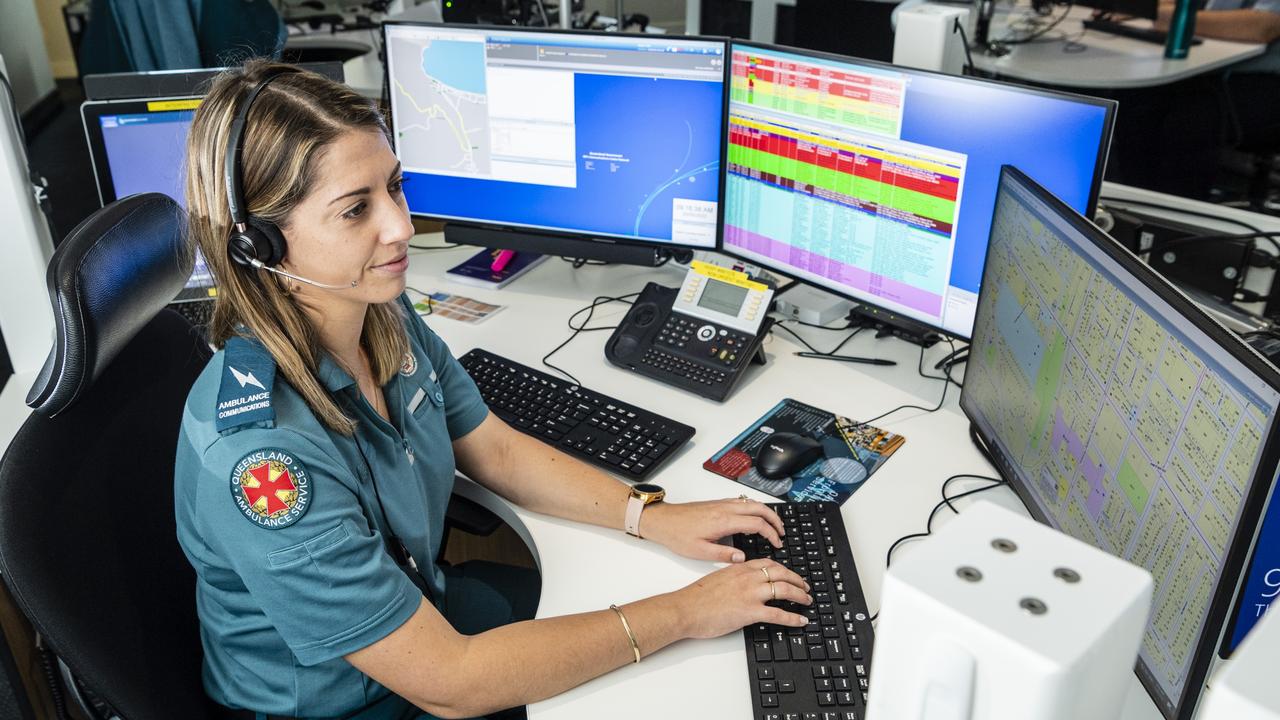
Ms Meyer said while the job could include some difficult situations, one of the memorable moments was how a phone call could end.
“It means so much when they say thank you at the end of the call,” she said.
“You get a warm feeling inside when they appreciate that you’ve helped them through a rough moment, and it can make you really enjoy the job.”
Ms Meyer said EMDs were provided with extensive resilience training and support in line with situations that might arise with a 12-hour shift.
“Anything that does affect us, we have the option of peer support, colleagues we can turn to, and I have awesome support at home as well which makes a big difference,” she said.
“The training was tough … I didn’t think I could do this, but now I know I can, and I really love what I do,” she said.
Ms Meyer is just one of many emergency dispatchers across the region who are the first point of call when residents are faced with a difficult situation.
22-year community commitment
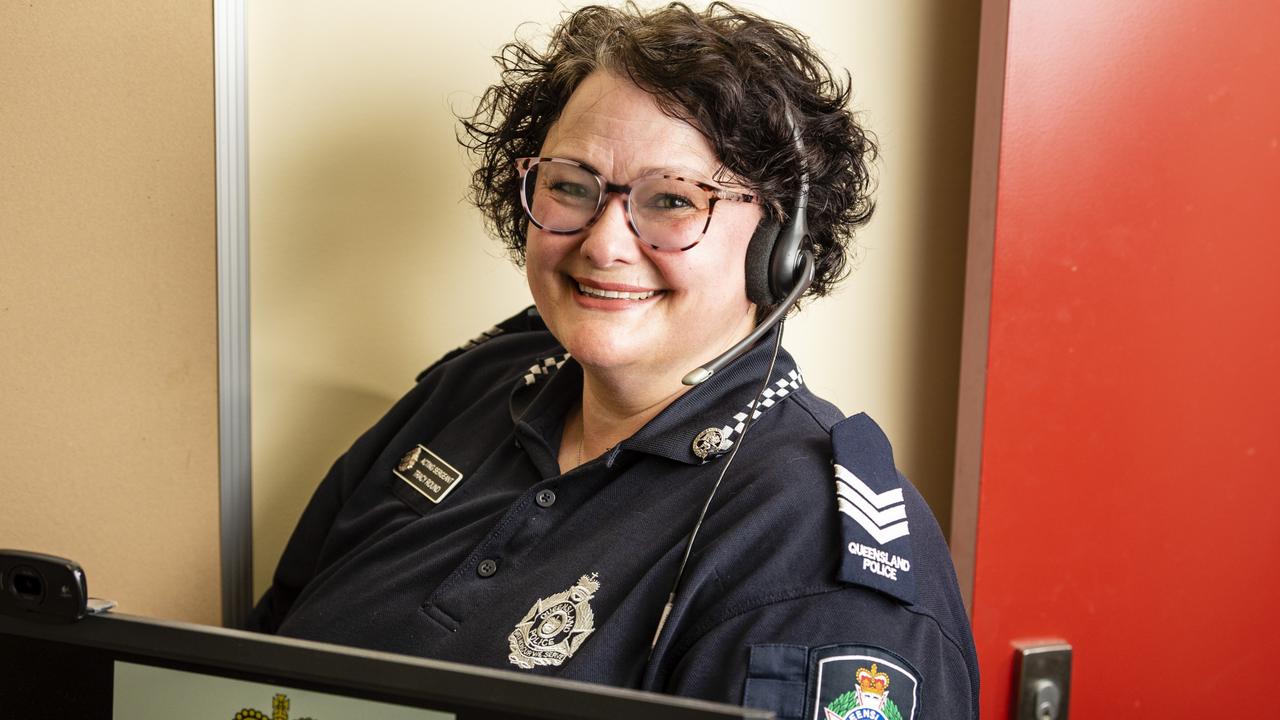
A Toowoomba police sergeant had dipped her toes in a variety of careers before recognising her calling 22 years ago.
Sergeant Tracy Round became an operational police officer after completing a university degree and working in retail, administration and accounting positions.
“Nothing really seemed to fit … policing was my true nature,” she said.
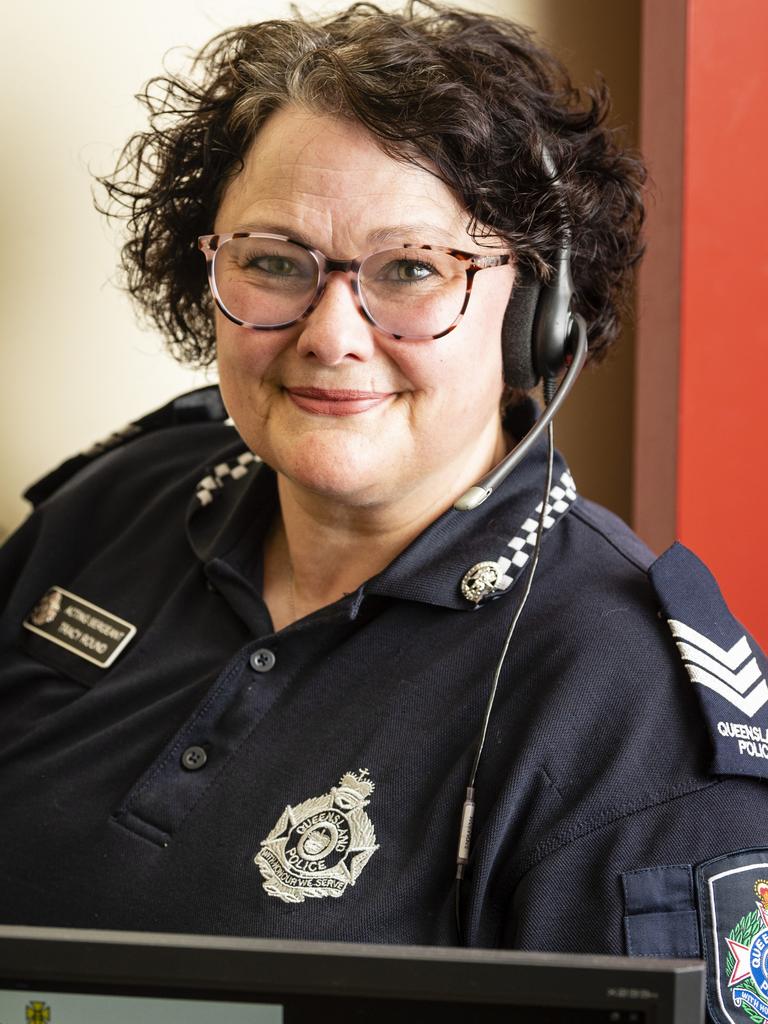
After serving in numerous policing roles, Sgt Round stepped into the communications role in 2016, working as a dispatcher, before recently securing a promotion to Communications Coordinatior within the Toowoomba Communications Centre.
“Everyday is a memorable day when you’re in the communications sector,” she said.
“There’s never a dull moment.
“We provide such a pivotal role, both to our police on the road, but also our interaction with the community.
“First and foremost, we’re here to respond to the community in their times of crisis, while keeping our police officers safe on the roads and providing them with the most up to date and important information that we can.
“It’s mentally challenging, but its very rewarding at the end.”
Sgt Round felt when transitioning into the sector it would be a good use of her existing skills and knowledge, particularly of the region, which is equivalent to a third of the state.
“We have a mixture of police and trained civilians (within the communications team),” she said.
“Every day is a challenge, but the people you get to help and the safety of the crews … that is our utmost responsibility.”
Fire to floods: A QFES officer found her calling
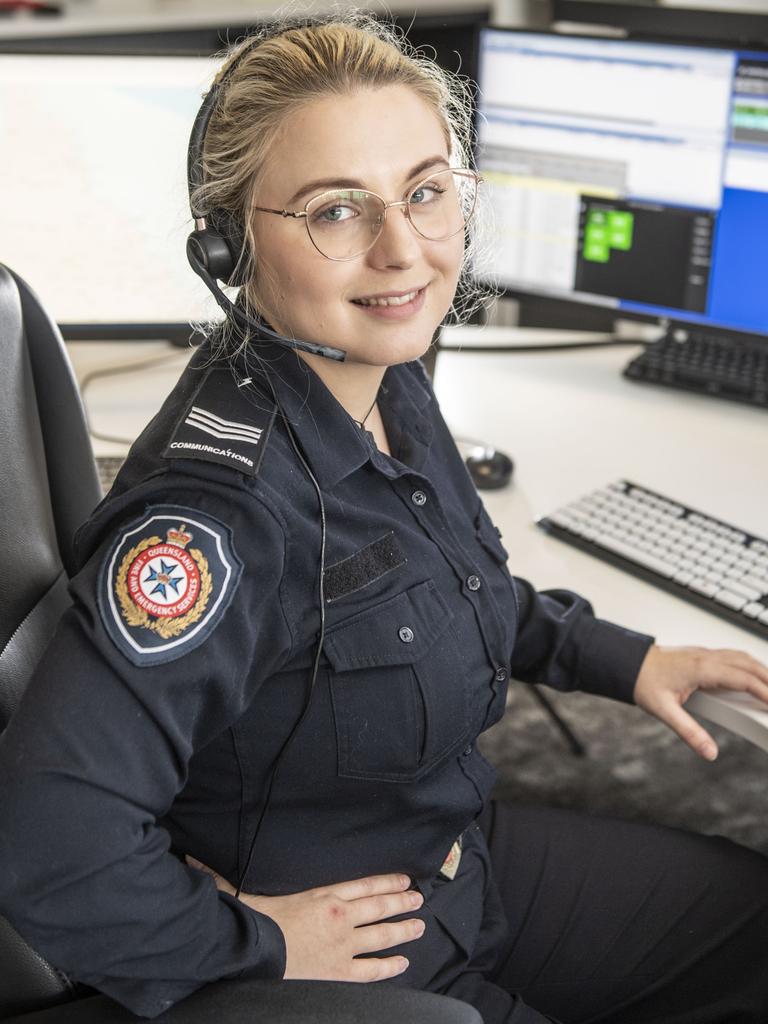
Former Dalby resident Shairra Burwood said she found her calling for communications after her brother-in-law made a crucial suggestion.
“I was studying a Bachelor of Arts, and it didn’t really feel right, so I worked in retail, which I really enjoyed,” she said.
“My brother-in-law is a firey here in town, and he said ‘If you enjoy that, why not take the next step up’.
“I now owe it all to him.”
Now a qualified QFES Fire Communications Officer, Ms Burwood has worked within the role in Toowoomba for four years, and seen many things.
“When I started in 2018, 2018 and 2019 were the worst bushfire seasons recorded in a long time,’ she said.
“There was no time to (question everything), I just had to get in and get it done.
“Then with the floods year … I have had this learning curve and it's a lot more logical thinking.
“Any firey can fight a fire, but we’ve only got a handful of specially trained crews that are qualified to attend a swift water rescue.”
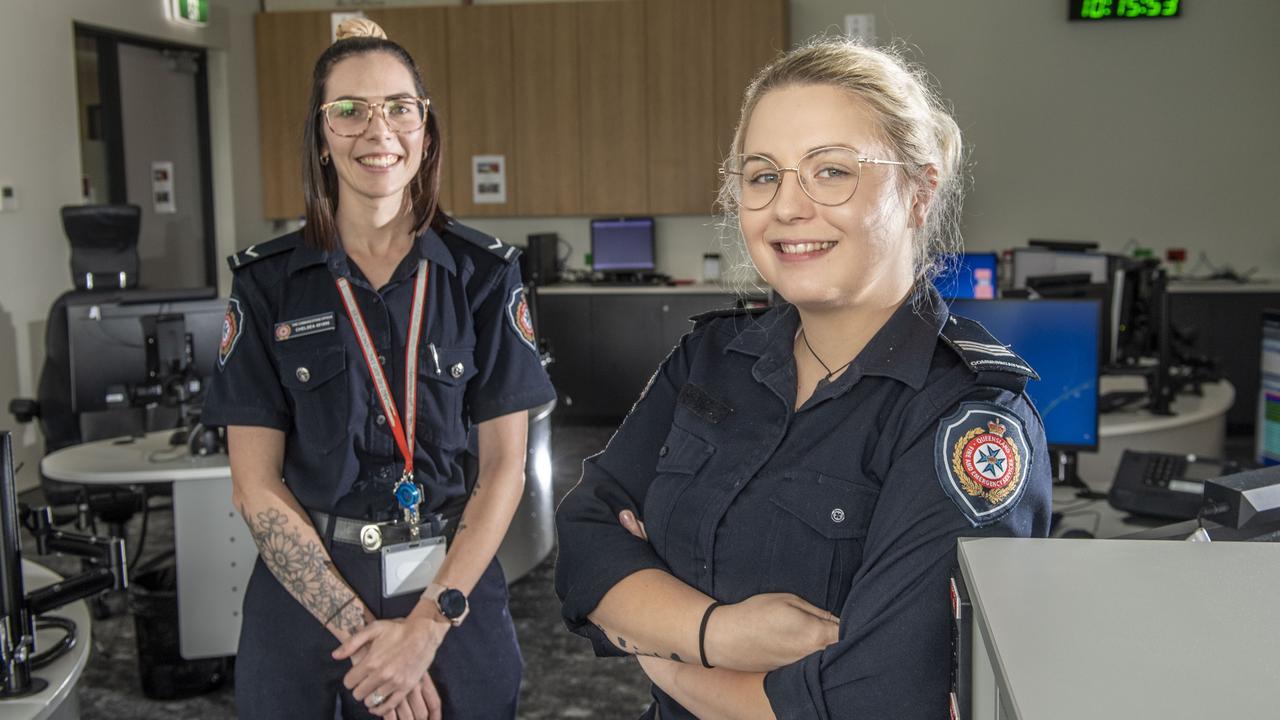
Ms Burwood said she felt the job was a right fit for her, due to her love of communicating and assisting people.
“I may not be strong enough to be on the truck or be able to encounter the things the fireys encounter, but I can be here, and I can assist and get them all the resources they need,” she said.
“There’s something different every day, and being with the fire service and rescue, there’s some really obscure things that can occur.
“There’s not always going to be a procedure for this specific job, so you have to be able to have some common sense and work out what needs to be sent.
“You have to think quickly, and we’re all about effective and efficient response.
“That’s what I love about it … we can still help.”
Perfect work/life balance found for dedicated mum
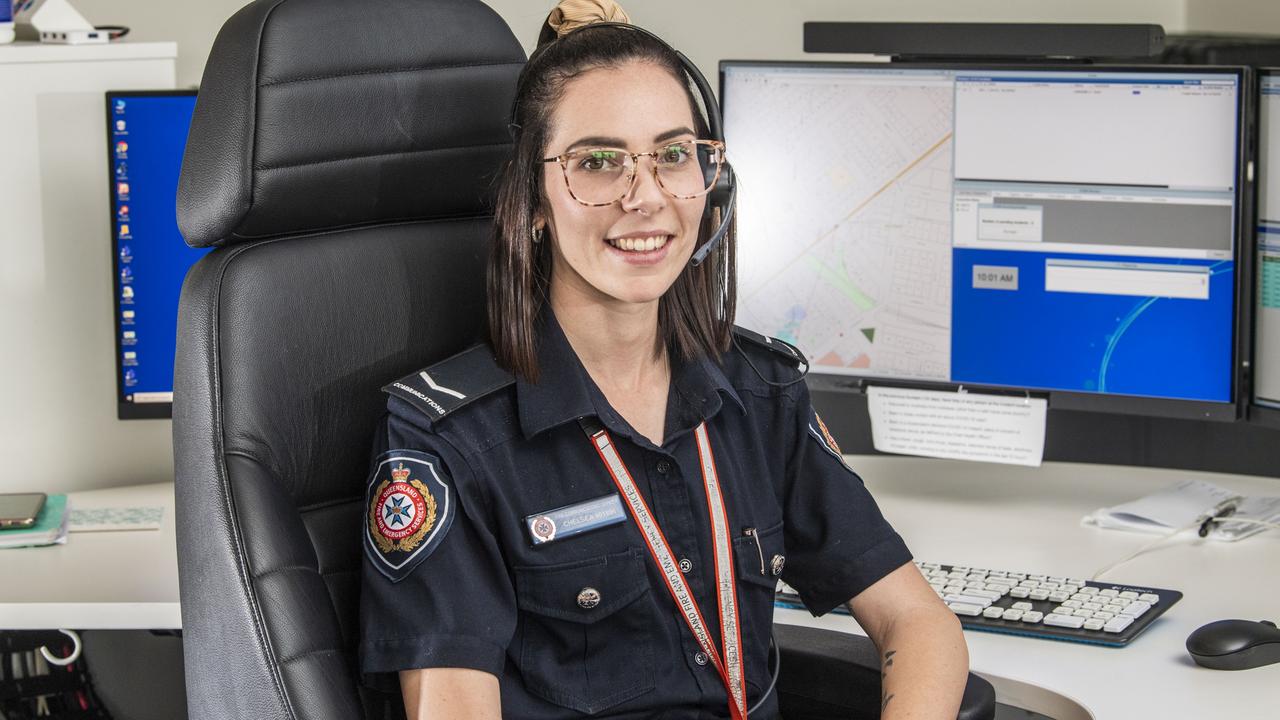
Wanting to spend time with her young family was a big motivator when it came to transitioning roles, a QFES fire communications officer said.
Chelsea Henning and her partner Jack, with their eight-month-old son Braedy, relocated to Toowoomba from the Sunshine Coast last year, after Mrs Henning made the decision to find a career she loved that offered a flexible work/life balance.
After previously working as a police officer and then within government roles, Mrs Henning knew she wanted to return to emergency services.
“After having my son, I didn't want anything that was operational or put myself at risk,” she said.
“This was a happy medium between still working in emergency services, but I get to go home to my son every day.
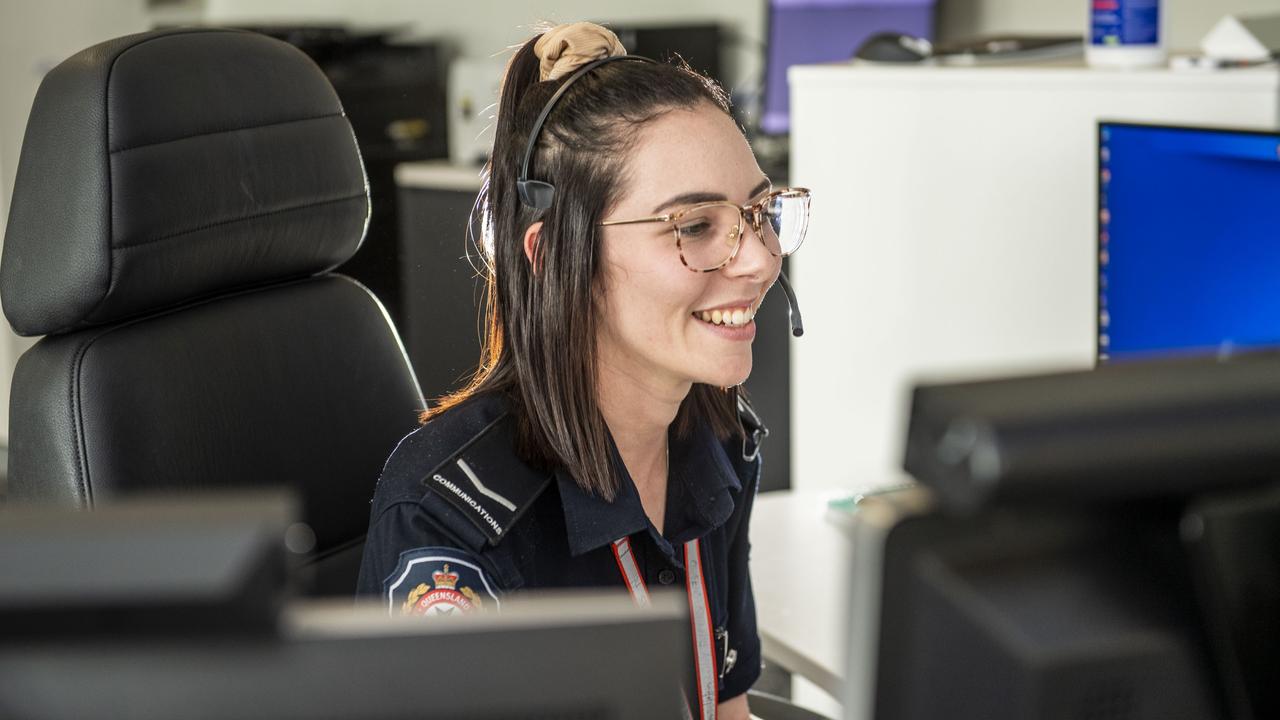
“Instead of doing a Monday to Friday job and having my son in daycare the whole time, this job gives me the flexibility and means I get to spend more time at home with my son.”
Mrs Henning, who said she easily became bored, loved the differences between each day.
“You don’t get the same job every day, and the jobs you get throughout the day wont be the same,” she said.
“You could start with an RTC, you could have a hazmat incident, and recently we have had the swift water rescues.”
Mrs Henning said the nature of the job was always worth it in the end.








